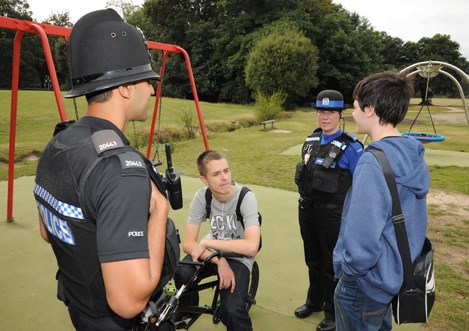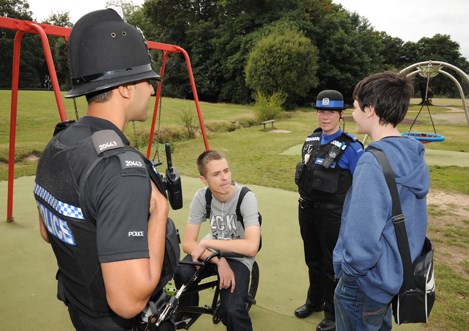
16 Oct 2018
Hundreds arrested in nationally-coordinated crackdown on county lines drugs gangs
National action to disrupt the drug dealing methodology known as county lines has led to more than 200 arrests and the safeguarding of 58 vulnerable people.
With full results still to be collated, the week-long period of intensive law enforcement activity has so far delivered:-
- More than 200 arrests
- 58 vulnerable people identified and safeguarded, including a number of children
- The seizure of deadly weapons including hunting knives, a firearm with ammunition, an axe, a meat cleaver and a samurai sword
- The seizure of tens of thousands of pounds of suspected criminal cash
- Significant quantities of heroin, crack cocaine and other illegal drugs seized
The crackdown was overseen by the new National County Lines Coordination Centre, which is led jointly by the NCA and National Police Chiefs Council (NPCC).
The Centre is mapping the threat from county lines nationally and prioritising action against the most significant perpetrators. It also provides support to front line officers dealing with county lines crime, and is working to deepen partnerships with non-law enforcement organisations in order to enhance the wider national response.
Dozens of police forces and Regional Organised Crime Units (ROCUS) took action ranging from search warrants and intelligence gathering to community events designed to raise awareness of county lines and encourage reporting.
The activity also included individuals currently serving prison sentences being arrested and charged with class A drugs supply.
County lines is the name given to urban drug dealers expanding their activities into smaller towns and rural areas, primarily to supply crack cocaine and heroin to addicts in those locations.
The method traditionally involves the use of a single phone line to communicate with drug users. These can generate between £3,000 and £5,000 per day, meaning they are defended from competing groups with violence and intimidation.
The NCA and NPCC assess there to be approximately 1500 lines in operation in the UK.
It is often children who are sent long distances to deal the drugs, and they will frequently be subject to violence and threats. Gangs will also set up dealing bases by taking over the homes of addicted or otherwise vulnerable people – a tactic known as ‘cuckooing’.
National activity over the week therefore included visits to vulnerable people, including those at risk of cuckooing, as well as officer engagement with commercial accommodation providers and private hire drivers, who may come into contact with offenders or those being exploited by county lines groups.
Sue Southern, NCA Deputy Director for Commodities and national county lines lead, said:
“Tackling county lines and its consequences is a national law enforcement priority. Supply gangs are responsible for high levels of violence and the exploitation and abuse of vulnerable adults and children, and every territorial police force in England and Wales has now reported some level of county lines activity.
“There are currently hundreds of live county lines investigations across the UK, and this period of intensification highlights the range of coordinated activity taking place to identify perpetrators, reduce violence, take away the proceeds of crime and safeguard the vulnerable.
“While these operations will have substantially disrupted numerous county lines, our work is ongoing and we are pursuing all available means of strengthening the national response to county lines.
“This requires collaboration across multiple sectors, ranging from law enforcement to safeguarding organisations and the private sector industries used by criminals to transport and store people and drugs. Through the National County Lines Coordination Centre we are working to enhance those partnerships.”
Deputy Assistant Commissioner Duncan Ball, NPCC lead for gangs and county lines, said:
“Last week’s operational intensification will be the first of many coordinated efforts by the newly-established National County Lines Coordination Centre, which is already strengthening our ability to effectively tackle county lines networks.
“Our primary aim in dismantling these networks is protecting the young and vulnerable people who are exploited by gangs and are subject to violence, fear and intimidation.
“This week’s intensification has protected 58 people from that violence, as well as removing a significant amount of drugs from the supply chain and disrupting gangs who profit from spreading fear and suffering throughout the UK.
“Our partnership with the NCA, through the National County Lines Coordination Centre, ensures that all affected forces are able to share best practice and improve our collective response to the scourge of county lines offending.”
Contact information
Communications office
By phone: 0800 538 5058
By email: press.office@npcc.police.uk

